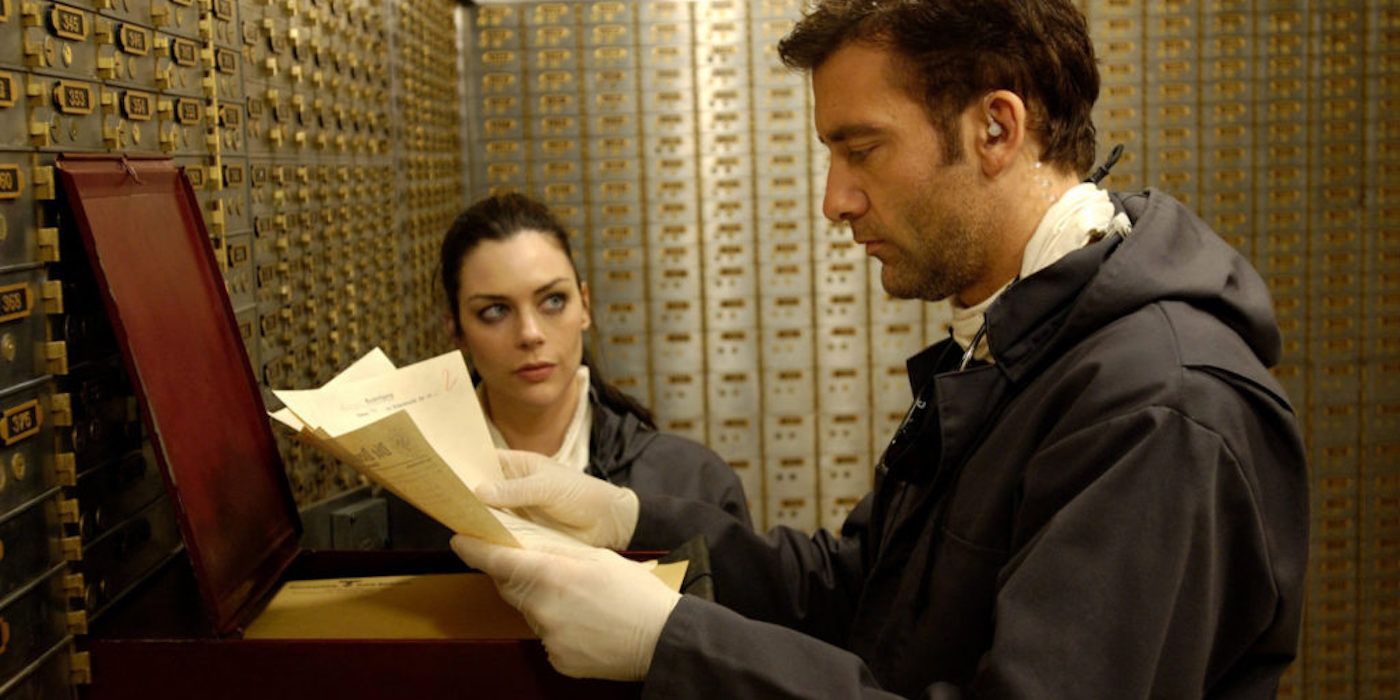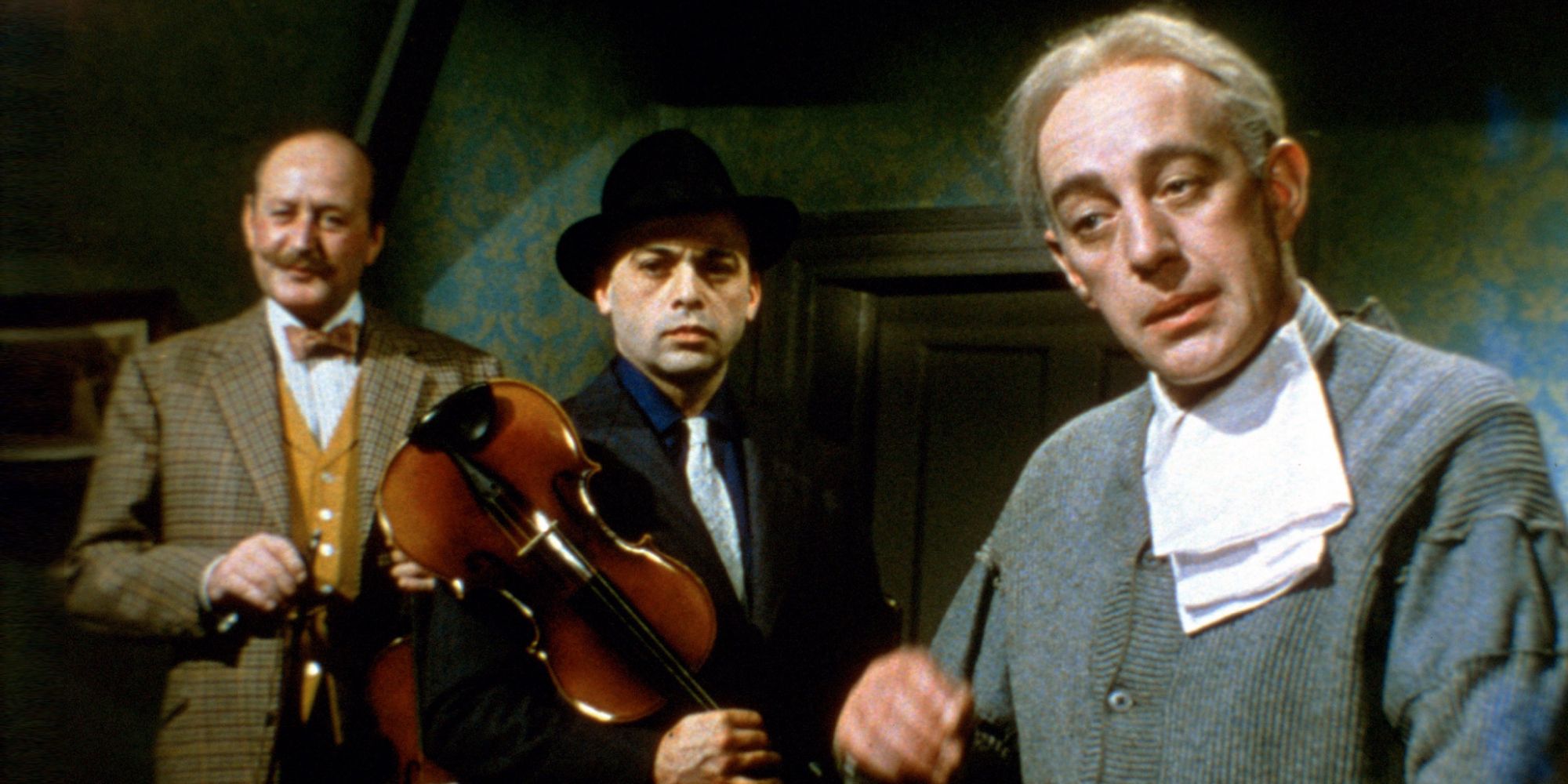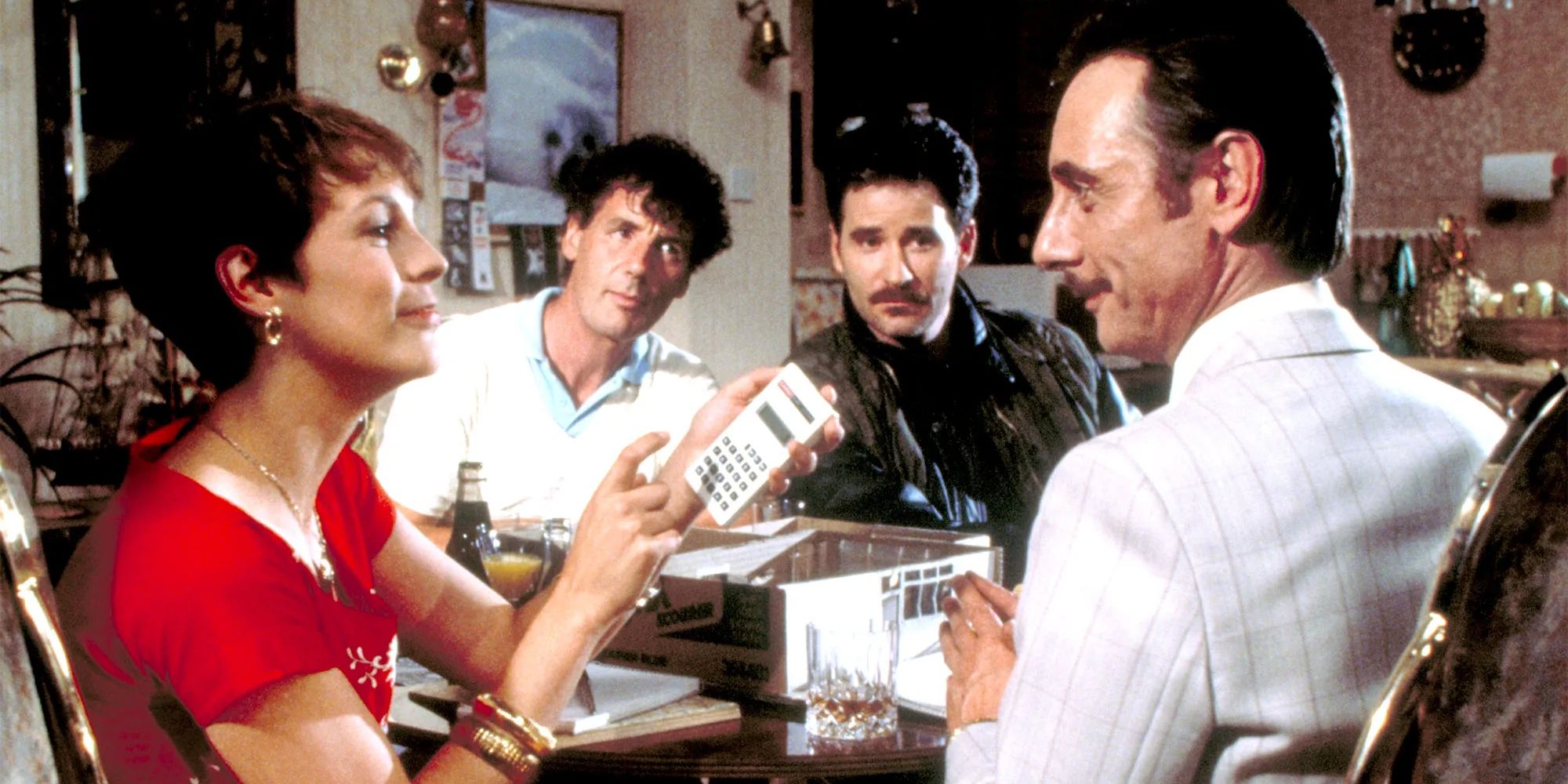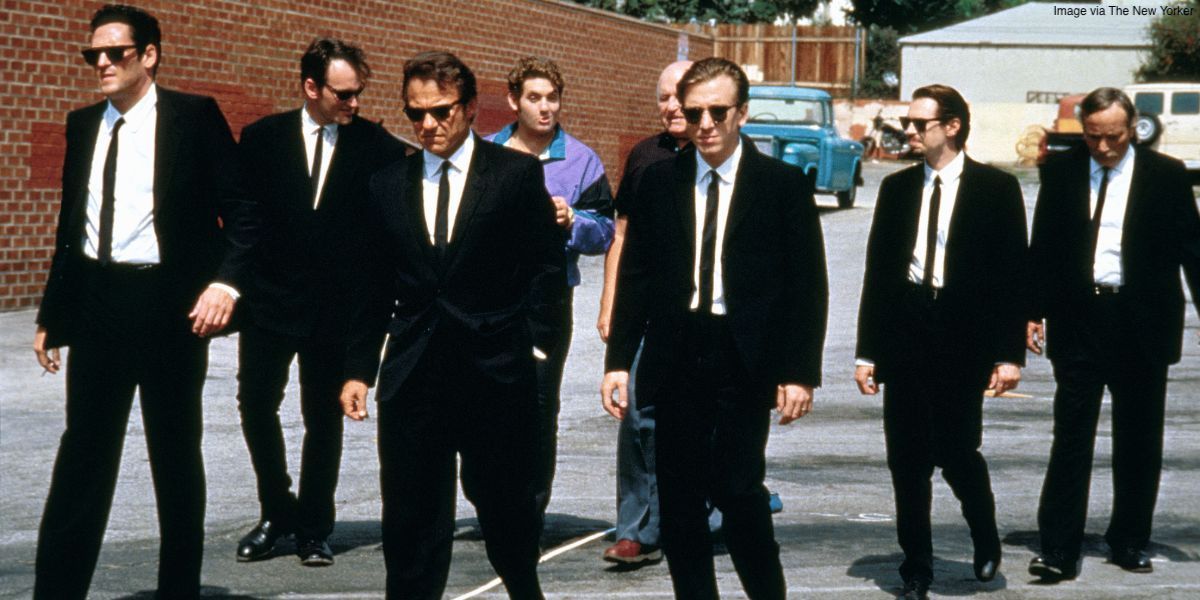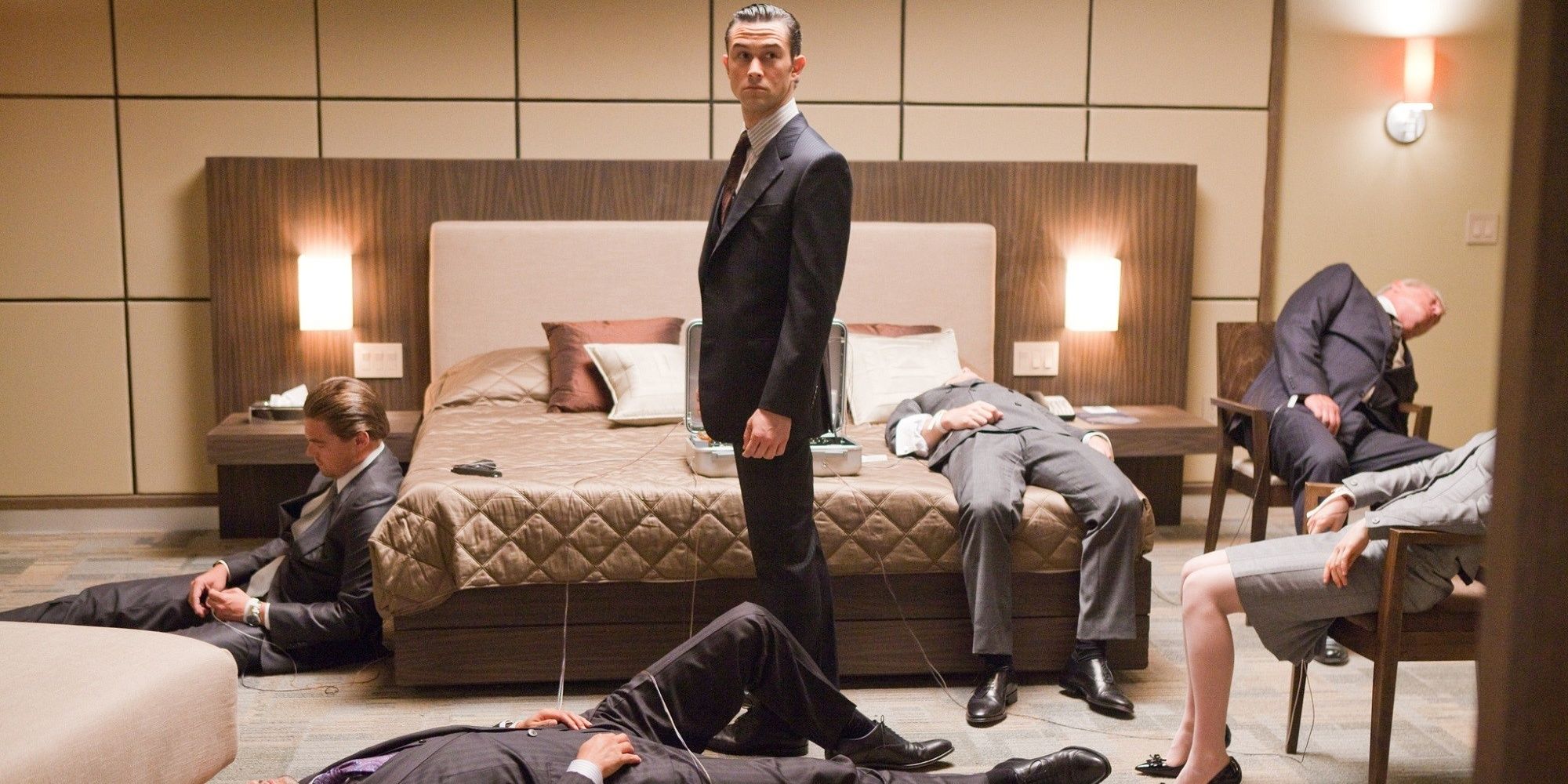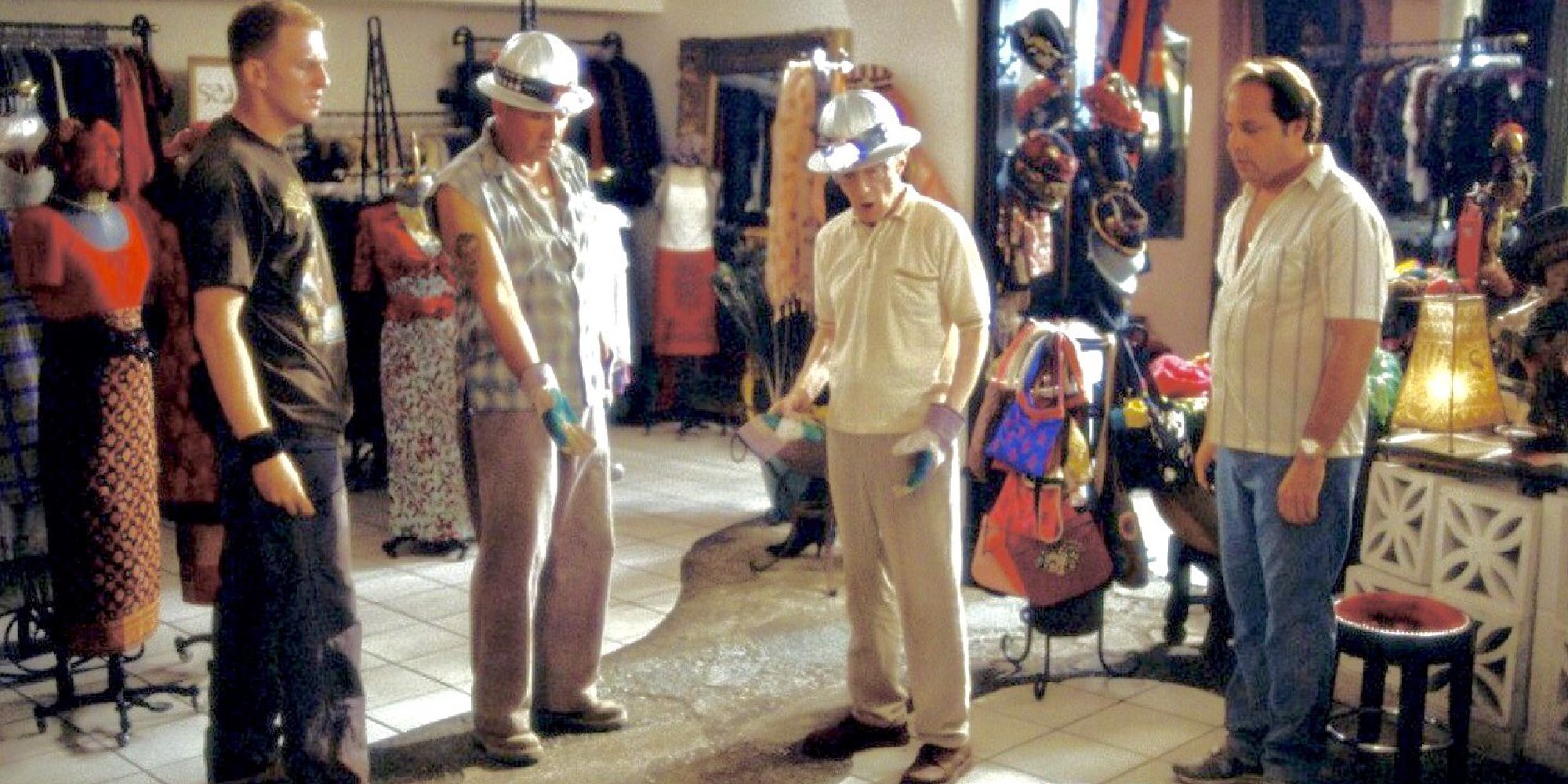It's likely that most people, if asked to define a heist movie, would describe it as one where the characters plot to steal something. What gets stolen can vary, but it's usually a large sum of money, or something small and incredibly valuable. And it's fair enough to define a heist movie this way, because the vast majority of heist movies do inevitably involve something getting stolen.
There are some remarkable films, however, that are not so easily definable as heist movies. They don't feature something getting stolen, as they either use a heist movie structure to tell their story, choose to ignore the details of a heist itself, or feature heists that are unsuccessful. In a variety of ways, they all emerge as theft-free heist movies, despite often having the look, feel, and/or structure of a classic heist movie narrative.
'Man on Wire' (2008)
Man on Wire is a documentary that tells the sort of story that might at first seem like pure fiction. It follows Philippe Petit, a French tightrope walker who, in 1974, walked between the two World Trade Center towers, spending almost an hour on a wire that connected the two buildings.
To make things even more dangerous, he did this without safety equipment or authorization. As such, the stunt involved breaking into the towers whilst they were still under construction, with Petit needing a crew to assist him in setting up the wire and eventually doing the walk. This ensures Man on Wire feels like a heist movie, given the people involved had to intricately plan and then execute their mission, much like how a gang of robbers may break into a bank.
'The Walk' (2015)
While Man on Wire is a documentary, The Walk chronicles the same story, though in the format of a feature film, and with a Hollywood budget. It takes the idea of detailing the break-in like a heist from Man on Wire, but otherwise feels different enough from the 2008 documentary to justify its existence.
Once you get used to Joseph Gordon-Levitt doing a French accent, it's a surprisingly gripping movie to watch, even if you already know the story. Given it's not restricted to archive footage and low-budget recreations, it can get more cinematic with its depiction of the World Trade Center break-in, perhaps making the film even tenser, and similar to that of a more traditional, non-documentary heist movie.
'Inside Man' (2006)
Inside Man at first feels like it's a standard heist movie through and through. Not that this is a bad thing of course, as Spike Lee injects the proceedings with his trademark style, and the way it details the heist in detail from the perspective of both the robber and the police on the outside keeps things interesting.
While it seems like the heist is being done to steal money from a bank, it turns out there's a great deal more to the plan, and it's not exactly money that the "robber" here is after. To elaborate further would be giving away too much about the film's second half, but it ends up being an interesting spin on the heist movie formula that keeps things suspenseful without anything really getting stolen.
'Sexy Beast' (2000)
An interesting movie (soon to have its own Sexy Beast prequel series) that focuses almost exclusively on the "set-up" of a heist, Sexy Beast is essentially about a retired safecracker who doesn't want anything to do with a criminal life anymore. His peaceful lifestyle is shattered, however, when a psychotic colleague shows up at his exotic house in Spain and tries to pressure him to come out of retirement for one last job.
There are plenty of heist movies that start with a character getting roped in for a so-called final robbery, but Sexy Beast subverts this by making the main character almost endlessly reluctant to participate. This makes it darkly funny, but also incredibly tense, given Ben Kingsley's character - the one doing the pressuring - isn't exactly good at hearing no as an answer.
'The Ladykillers' (1955)
There's something exceedingly funny about watching a gang of incompetent criminals make life hard for themselves, with The Ladykillers being one of the best (and funniest) within this sub-genre. Its plot is about a gang of criminals who plan a bank robbery at a house they rent from an elderly woman, only to have her continually thwart their criminal activities.
Their attempts to stop her prove unsuccessful, with plenty of great dark comedy that's aged surprisingly well following, as a result. Essentially, The Ladykillers would be a true heist movie if the characters here were good at being criminals. But they're not, and as such, The Ladykillers remains hilariously heist-free.
'A Fish Called Wanda' (1988)
A Fish Called Wanda is another example of a crime-comedy that focuses far more on being funny than having a more traditionally tense crime narrative. Here, the main focus of the plot is on four individuals who continually attempt to double-cross each other in the aftermath of a jewel heist, leading to plenty of misfortune and pitch-black humor all around.
While the jewel heist here is essential for kicking off the main narrative, it's de-emphasized to the point where it's hard to remember it even involved a heist. Instead, what will stick with you from A Fish Called Wanda is the comedy, with Kevin Kline probably stealing the show in what would end up being an Oscar-winning performance.
'Avengers: Endgame' (2019)
While Avengers: Infinity War was teased as a heist film of sorts, given it involves Thanos going on a mission to steal all the Infinity Stones, it's Avengers: Endgame that ends up having more of a heist movie structure. The Avengers are the ones doing the heist this time, planning a “time heist” that will let them undo the damage caused by Thanos at the end of Infinity War.
It's an interesting take on the heist movie, using time travel to take things from certain points in the past to achieve the greater good. Ethically, it probably doesn't count as "stealing" in the traditional sense, and the Stones are even returned to where they need to go after the battle's been won. If anything, Avengers: Endgame provides an example of a heist movie where things are borrowed instead of stolen.
'Reservoir Dogs' (1992)
Reservoir Dogs might sound like a straightforward heist movie on paper. Two professional robbers assemble half-a-dozen other criminals, give them unique aliases, and organize the robbery of a jewelry store. Where the film subverts expectations is what it actually shows or, more accurately, decides what not to show.
While the heist does in fact happen (and goes terribly wrong), the robbery itself is not shown. As viewers, we only see the aftermath, and some of the events beforehand, thanks to flashbacks. This is to say nothing of the consequences of the heist leading to no one getting away with actually stealing anything, but even then, it's a heist movie where the audience doesn't see anything get stolen; only the repercussions of the stealing itself.
'Inception' (2010)
A mind-bending movie about breaking into dreams, Inception utilizes a heist movie structure to make its unique premise understandable to viewers. The main characters here need to infiltrate someone's dreams to plant an idea there, which will then affect their actions in real life.
As such, Inception is the rare heist movie that's about breaking into some place (or somewhere) where something can be left, rather than having something get taken from a place. The very premise makes it explicitly clear that nothing will be stolen, in the traditional sense, even though the set-up to the main job the characters need to do - and the structure itself - will feel very familiar to fans of heist movies.
'Small Time Crooks' (2000)
Small Time Crooks follows a crew of crooks who might be even less than small-time. The plot concerns them trying to execute a heist that involves setting up a cookie shop as a front, to provide cover for a tunnel they need to dig for their big robbery.
However, to their surprise, the shop ends up being surprisingly successful, and maintaining the cookie shop ends up becoming harder work than trying to continue the heist. The robbery derails in an unexpected and quite amusing fashion, meaning this is a heist that gets thwarted by unexpected events, ensuring that Small Time Crooks ends up unable to be a heist movie, even if the characters themselves would like it to be.




